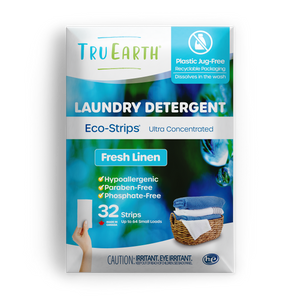Water is a precious resource, and in today's world, conserving it is not just an option but a responsibility. Reducing water consumption at home not only helps conserve this vital resource but also lowers utility bills and contributes to a more sustainable lifestyle. Here's a comprehensive guide on how to minimize water usage in and around your home.

Upgrade to Water-Efficient Appliances
One of the most effective ways to cut down water consumption is by investing in water-efficient appliances. This includes high-efficiency washing machines and dishwashers that use less water per cycle.
Look for appliances with the ENERGY STAR label, as these are designed to be more water-efficient, ultimately saving both water and energy.
Fix Leaks Promptly
Even a small leak can lead to significant water wastage over time. Regularly check for leaks in faucets, toilets, and pipes, and fix any issues promptly. A dripping faucet may seem minor, but those droplets add up, and fixing leaks can make a noticeable impact on your water bill.
Install Low-Flow Fixtures
Low-flow fixtures, such as faucets and showerheads, are designed to limit water flow without compromising performance.
By installing these fixtures, you can significantly reduce the amount of water used for daily activities. Modern low-flow fixtures are designed to provide ample water pressure while maintaining efficiency.
Collect Rainwater for Outdoor Use
Utilize rainwater by setting up a rain barrel in your yard. Rainwater harvesting is a simple yet effective method for reducing reliance on municipal water for outdoor tasks like watering plants and gardens. This not only conserves water but also provides a natural and nutrient-rich source for your plants.
Be Mindful of Lawn Watering
Lawns can be significant water consumers, especially in arid regions. Adjust your lawn watering practices based on the weather.
Avoid watering during the hottest parts of the day to minimize evaporation, and ensure your sprinkler system is targeting the lawn rather than paved areas. Consider drought-resistant landscaping options to reduce the need for excessive watering.
Opt for Efficient Irrigation Systems
If you have a garden or landscaping that requires regular watering, consider installing drip irrigation systems. Drip systems deliver water directly to the base of plants, minimizing water loss through evaporation and ensuring more efficient use.
Time Your Showers
Showers are a common area where water can be wasted unknowingly. Encourage shorter showers by setting a timer or using a playlist of short songs. Additionally, consider installing a low-flow showerhead to further reduce water consumption without sacrificing water pressure.
Run Full Loads in Dishwashers and Washing Machines
Maximize the efficiency of your dishwashing and laundry activities by waiting until you have a full load before running these appliances. Running full loads reduces the frequency of use and optimizes water consumption per item washed.
Consider Greywater Systems for Sustainable Water Reuse
Greywater, which consists of wastewater from showers, sinks, and washing machines, often goes down the drain without being utilized. However, with the installation of a greywater system, this relatively clean water can be repurposed for various household tasks.
Greywater systems divert water from these sources to be reused for activities like flushing toilets, watering plants, and even for outdoor cleaning. This not only minimizes the strain on your fresh water supply but also contributes to a more sustainable and eco-friendly water management strategy.
Raise Awareness and Foster Water-Conscious Habits
While implementing physical changes like upgrading appliances and installing greywater systems are tangible steps, the importance of education and awareness cannot be overstated. Creating a water-conscious household involves educating family members about the significance of water conservation and encouraging them to adopt mindful habits.
Initiate conversations about water conservation by discussing the environmental impact of excessive water usage and the role each family member can play in reducing it. Emphasize the importance of turning off taps tightly to prevent leaks and encourage the habit of fixing any leaks promptly. Consider creating a family challenge or setting goals for reducing water consumption, turning it into a collaborative effort.
Implementing water-conscious habits, such as turning off the tap while brushing teeth or lathering hands with soap, not only contributes to reduced water usage but also creates a sense of responsibility among household members. Consider displaying reminders near water sources to reinforce these habits and make them part of your family's daily routine.
Additionally, schedule regular discussions or family meetings to assess your household's water consumption patterns and brainstorm further ideas for improvement. This collaborative approach not only fosters a sense of shared responsibility but also allows everyone to actively participate in creating a water-efficient home.

Charting a Greener Path: Navigating Efficient Water Management at Home
In conclusion, the success of water conservation efforts at home is closely tied to the collective understanding and commitment of household members.
By combining physical measures like greywater systems with an ongoing educational effort, you can create a lasting impact on water conservation. The goal is not just to implement changes but to instill a water-conscious mindset that extends beyond your home and contributes to a more sustainable future.


